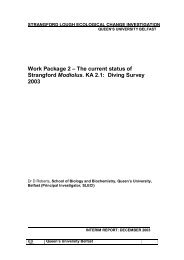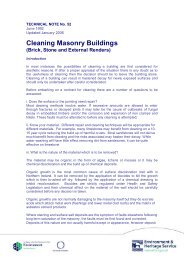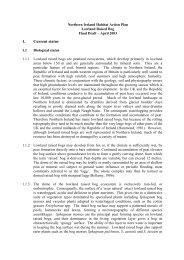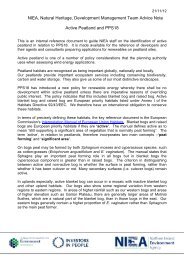Municipal Waste Data Monitoring and Reporting: Interim Guidelines
Municipal Waste Data Monitoring and Reporting: Interim Guidelines
Municipal Waste Data Monitoring and Reporting: Interim Guidelines
You also want an ePaper? Increase the reach of your titles
YUMPU automatically turns print PDFs into web optimized ePapers that Google loves.
4.1.3 Timeliness<br />
Once a database has been developed for storing data, it is important that the<br />
required data input is carried out in a timely manner. <strong>Data</strong> from daily/<br />
weekly / monthly operations should be fed into the database as soon as the<br />
information is generated, to keep the database up to date. <strong>Reporting</strong> outputs<br />
generated from the database can only be as current as the information that has<br />
be fed into the system, <strong>and</strong> late data entries will inevitably result in inaccurate<br />
reporting.<br />
4.1.4 Minimal Paperwork<br />
District Councils are required to report data for several activities. These<br />
reporting tasks can be quite burdensome <strong>and</strong> as such the objective should be<br />
to keep paperwork down to a minimum.<br />
The issue of paperwork is also linked to the consideration of consistency,<br />
which is likely to suffer when the same data is collected more than once.<br />
Internal recording <strong>and</strong> monitoring systems developed by the District Councils<br />
should thus be designed to not only minimise paperwork, but also to enable<br />
the production of reports from a common database as far as practicable.<br />
MUNICIPAL WASTE DATA MONITORING AND REPORTING: INTERIM GUIDELINES 14

















